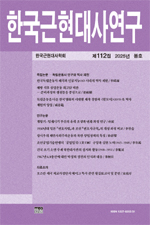- 영문명
- Institutional Management and Structural Limitations of Land Improvement under the Japanese Government General of Korea : Formation and Disintegration of the ‘Agency System’
- 발행기관
- 한국근현대사학회
- 저자명
- 강명진(Myung-jin KANG)
- 간행물 정보
- 『한국근현대사연구』제113집, 89~123쪽, 전체 35쪽
- 주제분류
- 인문학 > 역사학
- 파일형태
- 발행일자
- 2025.06.30
7,000원
구매일시로부터 72시간 이내에 다운로드 가능합니다.
이 학술논문 정보는 (주)교보문고와 각 발행기관 사이에 저작물 이용 계약이 체결된 것으로, 교보문고를 통해 제공되고 있습니다.

국문 초록
1920년대 조선총독부 토지개량부, 동양척식주식회사 토지개량부, 그리고 조선토지개량주식회사를 통한 토지개량사업의 대행사업은 세 기관 간에 서로 협의하여 효율적으로 사업을 수행하도록 도입한 새로운 방식이었다.
조선총독부 토지개량부는 제2차 산미증식계획에 따라 토지개량사업 업무가확대되어 과에서 부로 격상된 것이었다. 수리조합이나 대행회사의 토지개량사업을 이른바 지도·장려하는 역할을 맡았다. 동척 토지개량부와 조선토지개량주식회사는 제2차 산미증식계획의 원만한 수행을 위해, 토지개량사업 대행을 맡을 기관의 필요성에 따라 설치되었다. 그중에서도 동척 토지개량부는 제1차 산미증식계획 시행 때부터 동척이 원하던 대로 본격적인 토지개량사업을 할 수 있었고, 비록 실제로 시행하지는 못하였으나, 토지개량사업을 통한 이민사업까지 구상할 수 있었다. 조선토지개량주식회사는 토지개량회사 설립에 대한 민간의 요구가 수용된 측면과 동시에 민간의 자본과 기술력을 도입한 측면이 있었다.
하지만 조선농민, 특히 수리조합 입장에서는 수리관개시설 공사 등에 기존에는 필요 없었던 대행이라는 중간 단계가 추가됨으로써 그 비용, 즉 수수료만 증가한 모양새가 되었다. 이렇게 불필요하다고 여겨지는 대행 방식을 정부 당국에서 종용하는 병폐가 있었다.
영문 초록
In the 1920s, the land improvement projects carried out by the Land Improvement Department of the Government-General of Korea, the Land Improvement Department of the Oriental Development Company, and the Chosun Land Improvement Corporation were a new approach implemented through mutual consultation among the three organizations to ensure efficient execution.
The Land Improvement Department of the Government-General of Korea played a supervisory and promotional role for land improvement projects carried out by irrigation associations or delegated companies.
The Land Improvement Department of the Oriental Development Company and the Chosun Land Improvement Corporation were established to meet the need for agencies to carry out land improvement projects smoothly under the Second Rice Production Increase Plan. Among them, the Oriental Development Company's Land Improvement Department had already secured the opportunity to engage in full-scale land improvement projects as desired since the implementation of the First Rice Production Increase Plan. Although it never materialized in practice, it even envisioned immigration projects through land improvement.
The Chosun Land Improvement Corporation represented both the acceptance of private sector demands for the establishment of a land improvement company and the incorporation of private capital and technical expertise.
However, Korean farmers—particularly irrigation associations—found that the introduction of a new intermediary step in the form of delegated agencies for irrigation and drainage construction, which had not been necessary before, merely resulted in increased costs, namely service fees. There was a growing sense that this delegation system was being unnecessarily imposed by government authorities.
The various negative side effects of this delegated company system ultimately became one of the factors accelerating the discontinuation of the Second Rice Production Increase Plan, especially amid falling rice prices and other conditions in Japan.
목차
1. 머리말
2. 토지개량사업을 위한 ‘대행기관 체계’의 수립
3. 협력관계의 제도화와 역할분담 시도
4. 이해 충돌과 협력의 균열
5. 정책의 실패와 제도적 조정
6. 맺음말
참고문헌
키워드
해당간행물 수록 논문
참고문헌
관련논문
인문학 > 역사학분야 NEW
- Why Has Traditional Chinese Fortune-Telling Persisted? - An Analysis of Its Pseudoscientific Nature and Transformation Pathways
- The Practical View of “Oppose Book Worship” and Its Enlightenment to Ideological and Political Work
- The Chinese Practice of Marxist Urban Theory - A Case Study of Shanghai
최근 이용한 논문
교보eBook 첫 방문을 환영 합니다!

신규가입 혜택 지급이 완료 되었습니다.
바로 사용 가능한 교보e캐시 1,000원 (유효기간 7일)
지금 바로 교보eBook의 다양한 콘텐츠를 이용해 보세요!



